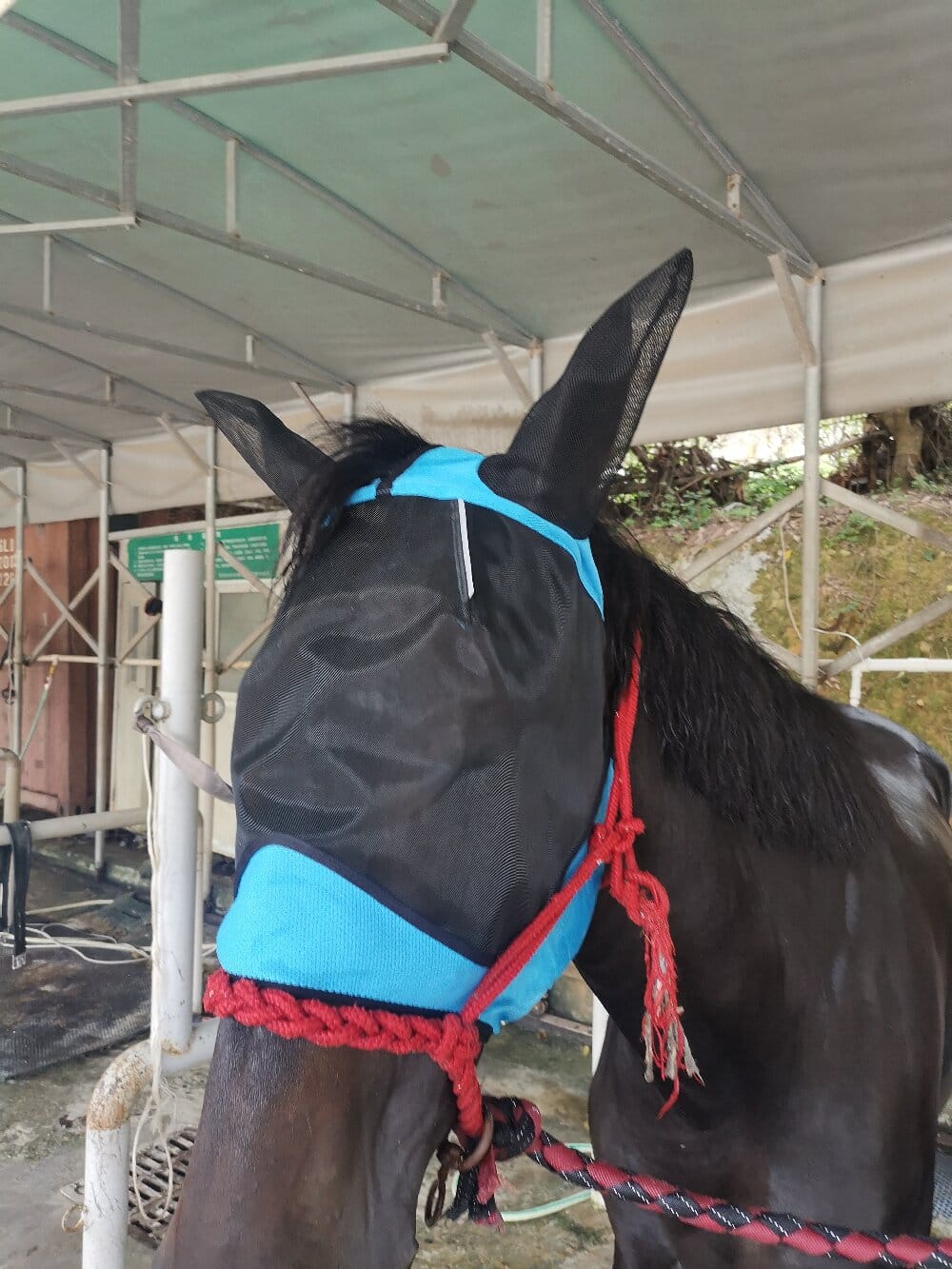A horse fly mask is an essential piece of equestrian gear designed to protect your horse from irritating and potentially harmful insects. Flies, gnats, and other pests can cause discomfort, infections, and even long-term eye damage. Whether you own a competitive show horse or a beloved pasture companion, investing in a high-quality fly mask ensures their well-being while keeping them comfortable during warmer months.
The Problem: How Flies Affect Horses
Horses are particularly vulnerable to flying insects due to their large eyes, sensitive skin, and outdoor lifestyles. Common issues caused by pests include:
- Eye irritation: Flies can transmit bacteria, leading to conjunctivitis or corneal ulcers.
- Skin infections: Persistent biting may cause open wounds or dermatitis.
- Stress and distraction: Constant swatting disrupts grazing, training, and overall relaxation.
Without protection, these problems can escalate, affecting your horse’s health and performance.
How a Horse Fly Mask Solves These Issues
A well-fitted fly mask acts as a barrier against insects while allowing for clear vision and breathability. Modern designs incorporate features like:
- UV protection to shield eyes from harmful sun rays.
- Mesh fabric that prevents flies from reaching the face.
- Adjustable straps for a secure, comfortable fit.
By reducing exposure to pests, these masks minimize stress and prevent infections, making them indispensable for responsible horse care.
Choosing the Right Fly Mask: Key Considerations
Not all fly masks are created equal. To find the best option for your horse, consider the following factors:
- Material: Look for durable, lightweight fabrics like polyester or nylon mesh.
- Coverage: Some masks protect only the eyes, while others extend to the ears and muzzle.
- Fit: Measure your horse’s head to avoid slippage or rubbing.
- Additional features: Reflective strips or waterproof coatings add extra functionality.
Selecting the right mask ensures maximum comfort and effectiveness.
Common Misconceptions About Fly Masks
Some horse owners hesitate to use fly masks due to myths or misunderstandings. Let’s debunk a few:
- “Masks impair vision”: High-quality masks use fine mesh that doesn’t obstruct sight.
- “They’re only for summer”: Flies can be active in spring and fall, so extended use may be necessary.
- “All masks are the same”: Custom fits and specialized designs cater to different needs.
Understanding these facts helps you make informed decisions for your horse’s comfort.
Maintenance and Care Tips
To prolong the life of your horse’s fly mask, follow these simple steps:
- Regularly inspect for tears or loose straps.
- Hand-wash with mild soap and air-dry to maintain mesh integrity.
- Store in a clean, dry place when not in use.
Proper care ensures the mask remains effective and hygienic throughout the season.
Conclusion: A Small Investment for Big Benefits
A horse fly mask is more than just a convenience—it’s a proactive measure to safeguard your horse’s health and happiness. By addressing the challenges posed by insects, you enhance their quality of life while preventing costly veterinary treatments. Whether you opt for a basic design or a feature-rich model, this simple accessory delivers peace of mind for both you and your equine partner.

